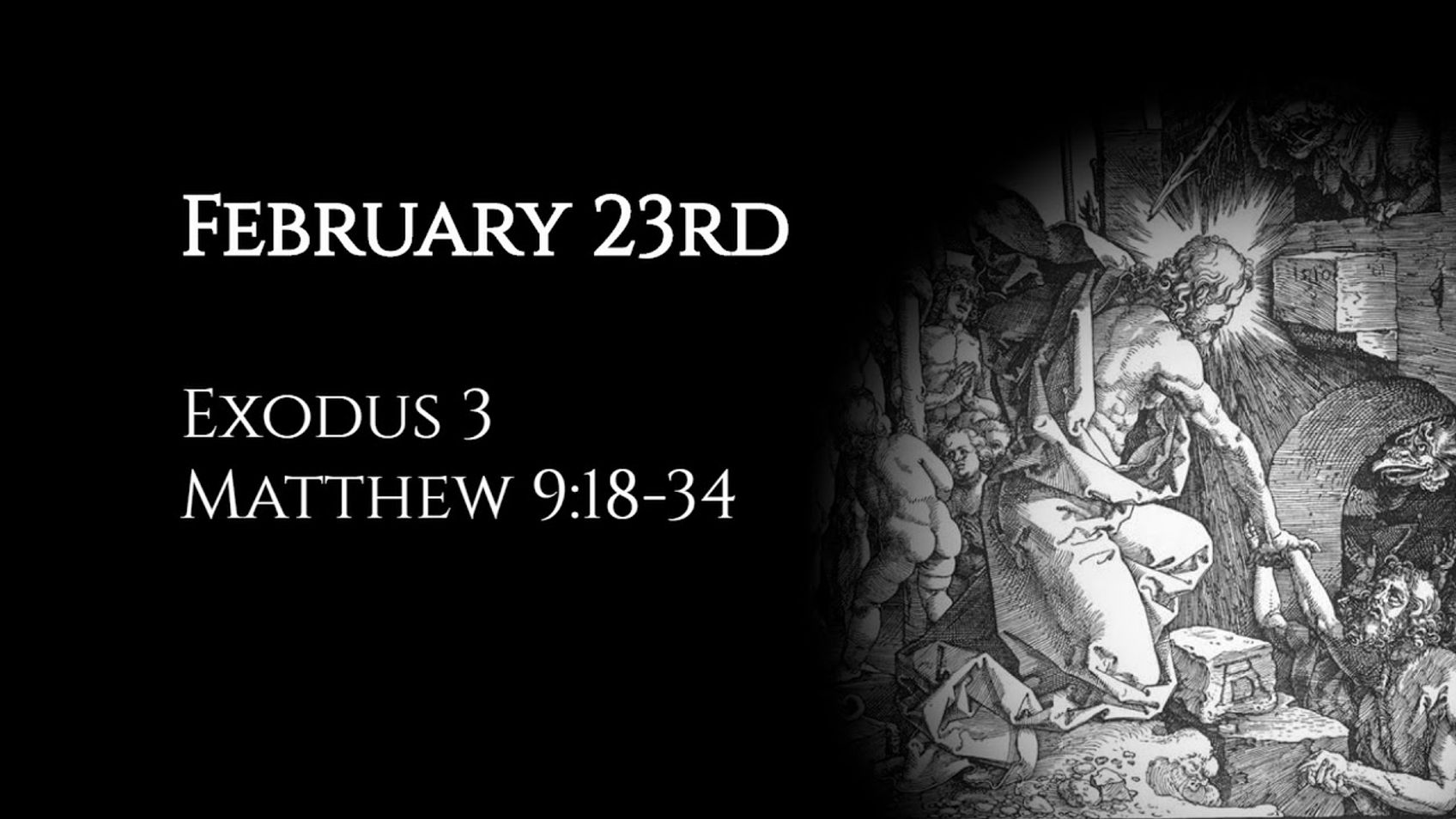February 23rd: Exodus 3 & Matthew 9:18-34

Theophany at the burning bush. Raising the dead daughter, healing the woman with the issue of blood.
Some passages referenced:
Deuteronomy 33:16 (reference to the burning bush); Numbers 12:3 (Moses' humility); Genesis 32:30, Judges 13:6, 17-19 (other requests for the divine name); Joseph's prophecy (Genesis 50:24); Genesis 22 (sacrificing at three days' journey).
Numbers 15:37-41 (tassels of the garment); Matthew 11:16-17 (not dancing at the flutes).
Reflections upon the readings from the ACNA Book of Common Prayer (http://bcp2019.anglicanchurch.net/).
If you have enjoyed my output, please tell your friends. If you are interested in supporting my videos and podcasts and my research more generally, please consider supporting my work on Patreon (https://www.patreon.com/zugzwanged), using my PayPal account (https://bit.ly/2RLaUcB), or by buying books for my research on Amazon (https://www.amazon.co.uk/hz/wishlist/ls/36WVSWCK4X33O?ref_=wl_share).
The audio of all of my videos is available on my Soundcloud account: https://soundcloud.com/alastairadversaria. You can also listen to the audio of these episodes on iTunes: https://itunes.apple.com/gb/podcast/alastairs-adversaria/id1416351035?mt=2.
More From Alastair Roberts
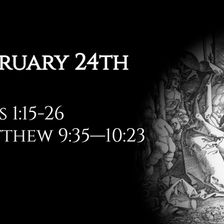
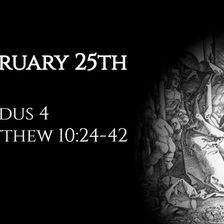
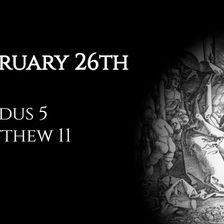


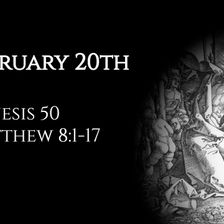
More on OpenTheo















